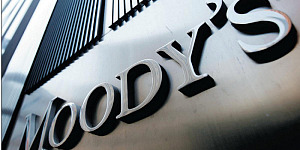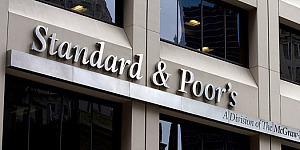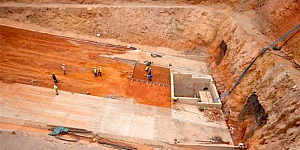The central bank of the Democratic Republic of Congo (DRC) cut its monetary policy rate by 600 basis points to 14.0 percent "in view of the good economic situation, both internationally and nationally, favourable macroeconomic prospects and the absence of imminent risks."
It is the first rate cut by the Central Bank of Congo (BCC) since November 2013 and the first change in rates since June 2017 when the rate was raised to 20 percent from 14 percent.
BCC said in a statement from April 10 that domestic prices had continued to decelerate in March, with the inflation rate down to 50.41 percent from 52.74 percent at the end of February, BCC said.
Data shows Congo's headline inflation eased for the sixth consecutive month in February to 48.85 percent in February from a 2017 high of 70.75 percent in August.
Continuing this declining trend, the central bank forecast inflation should end this year at 12.34 percent compared with an optimal target of 7.0 percent.
Congo, previously known as Zaire, is Africa's largest copper exporter and depends on raw materials for 95 percent of export revenue.
It's economy is benefitting from global demand and rising prices of raw materials, such as gold, diamonds, copper and cobalt, with economic growth this year seen accelerating to 4.3 percent from 3.7 percent last year and 2.4 percent in 2016, BCC said.
The 2018 forecast is down from the central banks' forecast last month of 5.2 percent.
Congo's foreign exchange reserves are rising on the back of higher exports and BCC said they had now reached US$1 billion, enough for 4 weeks and 2 days of imports, up from $810 million in December.
BCC said copper prices had stabilized around US$6,810 per tonne, while cobalt prices were continuing to rise exponentially to $87,221.55 per tonne in March, a monthly rise of 4.08 percent.
And this month prices have already reached $95,000, the central bank added.
Strong economic growth is supporting the exchange rate of Congo's franc, which plunged between November 2016 and August 2017.
But since September last year the franc has been more stable and in the first three months of this year it depreciated by 1.49 percent compared with depreciation of 11.27 percent in the same 2017 period, the central bank said.
Barring any shocks, the BCC forecast the franc would depreciate by 9.09 percent by the end of 2018 compared with depreciation of 23.65 percent in 2017.
Today the franc was quoted at 1,570.5 to the U.S. dollar, unchanged since the start of 2018.








































